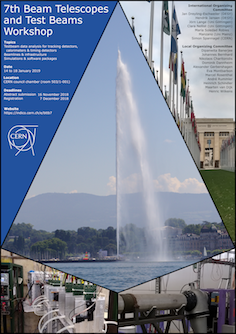Speaker
Description
Radiation therapy is an important tool in the treatment of cancer tumors. During this treatment, the tumor is destroyed by irradiating it with photons or hadrons (protons or heavier nuclei). In hadron therapy, the organs surrounding the tumor receive a smaller dose than in the treatment done with photons; however, to plan such a treatment the energy loss of hadrons in the surrounding tissue has to be known precisely. In the current state of the art, this is calculated based on a conversion of the photon attenuation coefficient measured in a photon CT to the stopping power. This conversion, however, is not based on physical principles and therefore results in large uncertainties effectively limiting the potential of hadron therapy. CT measurements done using protons would allow us to largely reduce these uncertainties, therefore reducing the unnecessary radiation dose received by the patient and making hadron treatment available for more types of cancer. I will show the developments of such a proton CT based on the ALPIDE sensor which was originally developed for the Inner Tracking System of the ALICE detector. I will focus on the test beam measurements of the sensor which are conducted to test its response to very low energy protons and helium ions ($< 200$ MeV) which is the energy range typically used in hadron therapy.




